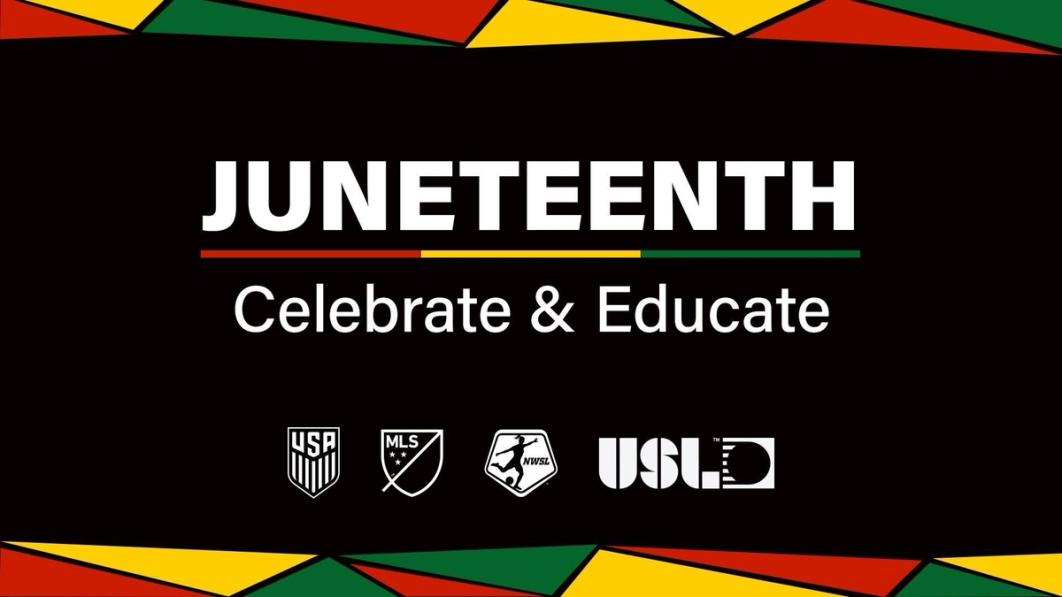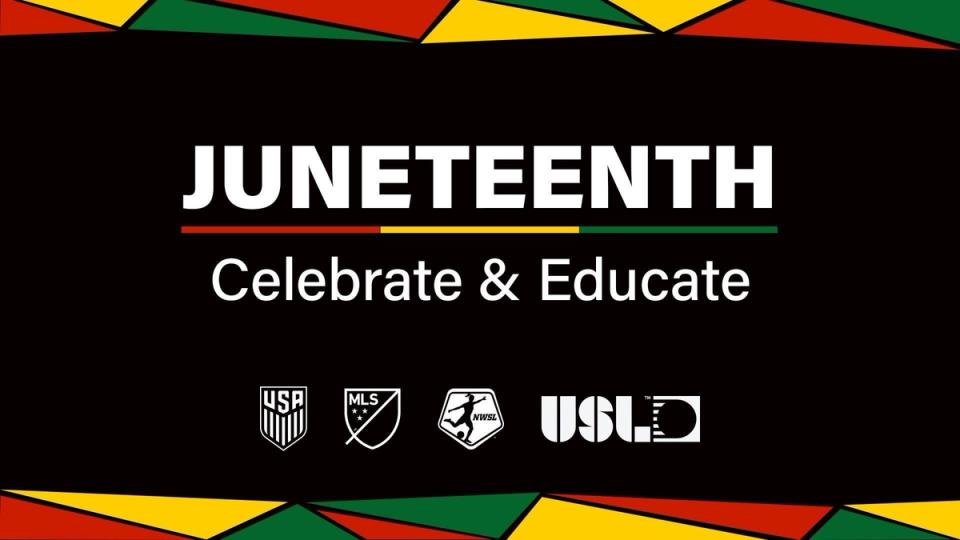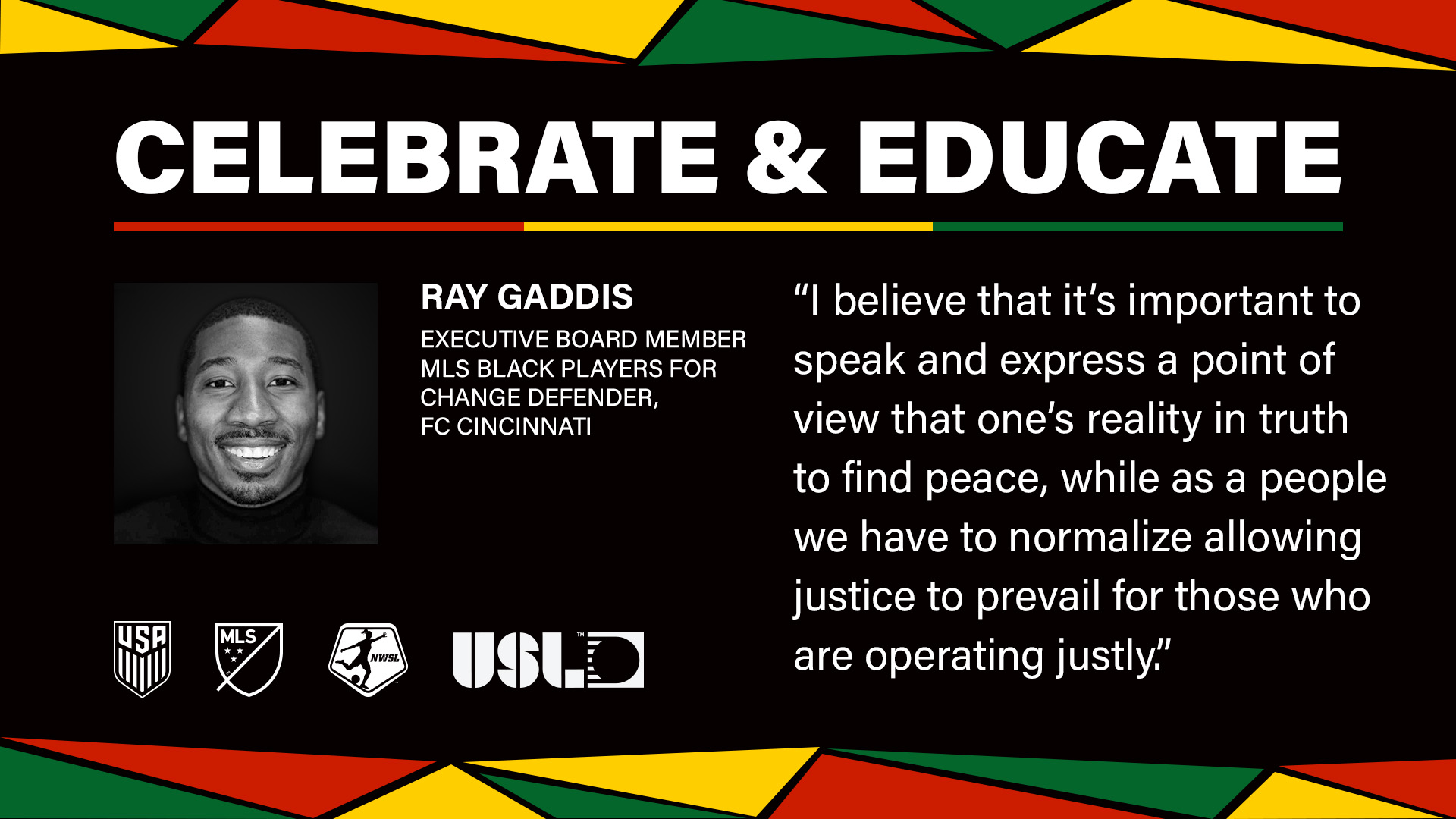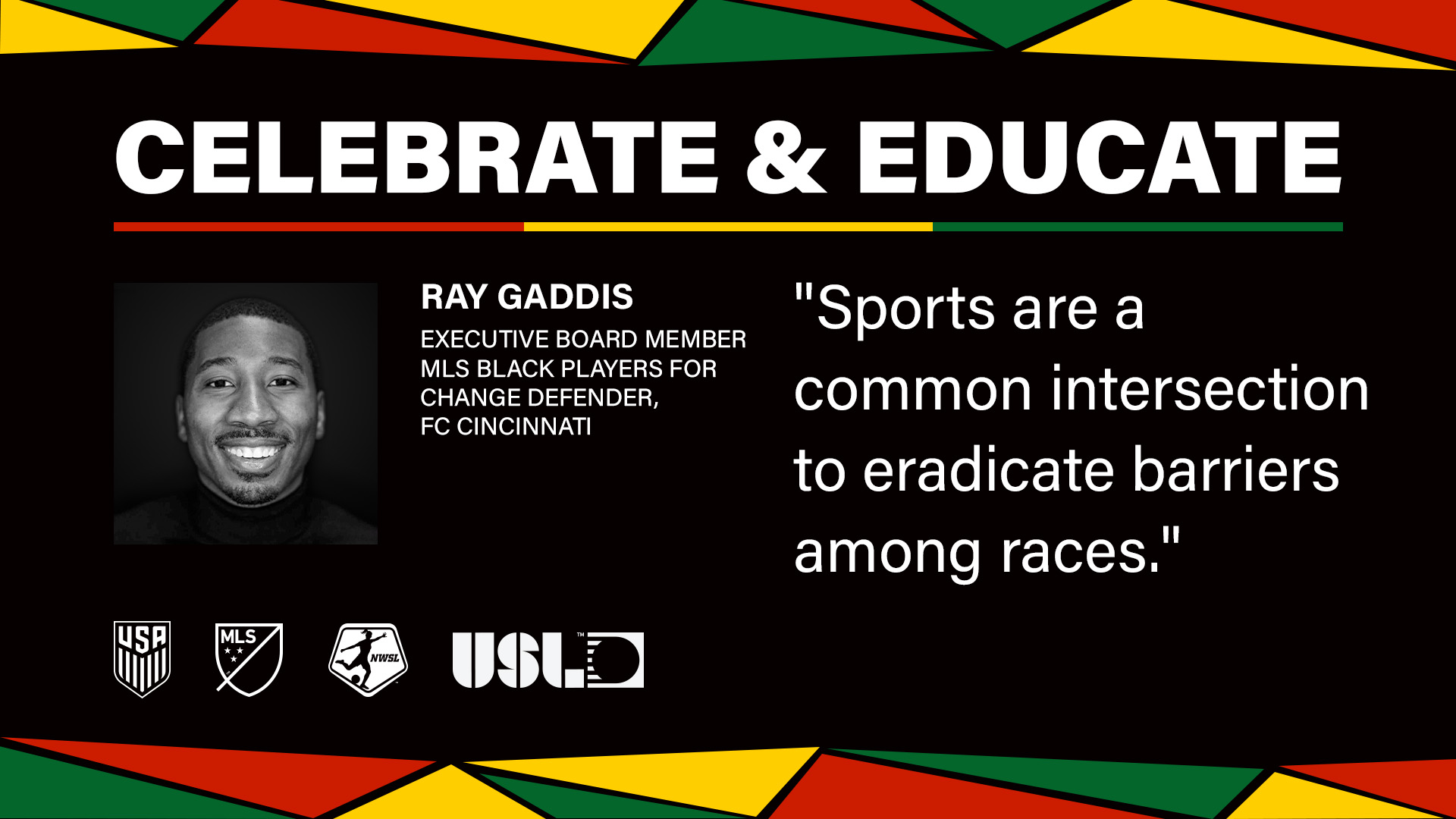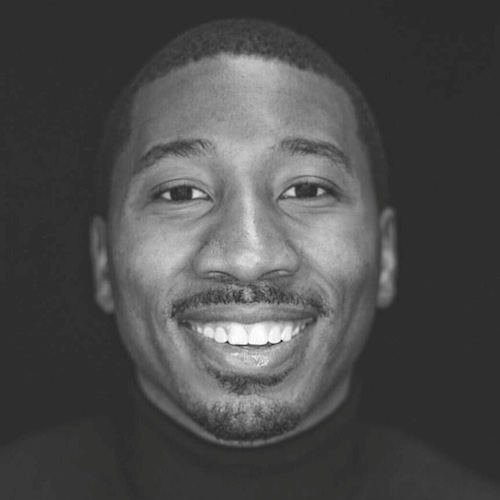
Ray Gaddis
Executive Board Member, MLS Black Players for Change.
Defender, FC Cincinnati.
What is the importance of recognizing Juneteenth to you?
Juneteenth is important because it reminds us of what we have gone through and what we can achieve. Juneteenth represents how freedom and justice in the U.S. have been delayed for Black people but not denied. Juneteenth is a historic moment when enslaved people’s prayers were answered and became free, and now so many people including myself have the liberty to be free in America.
How do you discuss the issues of racial injustice and the importance of Juneteenth, if at all, with non-black or non-Americans? Do you get asked about it when outside of the U.S.?
The first thing that I do is listen with the intent to understand the various perspectives when engaging in conversations about racial injustice with individuals that do not look like me. Then I lead with shared values pertaining to community, opportunity, justice, and equity. Then I use our shared values as a bridge, but not a bypass, when having conversations about racial injustice. I would also consider the audience and goals of the group of people that I am having the conversation with.
As Juneteenth has grown in notoriety, more people have asked me questions about the historic event. Because of my career as a professional soccer player and playing the world’s game, I am around people who are from different creeds, ethnicities and walks of life other than myself and my background. So naturally questions are asked.
Did you know about Juneteenth growing up? Was it celebrated in your family or community?
Growing up I knew about Juneteenth, simply because I was privileged with teachers that taught alternatively than just meeting the statewide curriculum of Indiana. For me, growing up we had to dig deeper beyond the surfaces of our textbooks, and now that I am older, I can see the dividends of learning about events such as Juneteenth which were not featured or highlighted as readily as they are today. To also note, I was blessed to have two minority teachers in 2nd and 4th grade to expose me to history and concepts of other cultures at such a young age. I truly believe these encounters at such a young age have given me a more well-rounded view of how I approach people and see things from other views while not suppressing my realities, truths, and rich history.
How do you feel about the following quote: “We’ve learned that quiet isn’t always peace, and the norms and notions of what ‘just’ is isn’t always justice.” – Amanda Gorman
Regarding the quote by Amanda Gorman, I believe that it’s important to speak and express a point of view that is one’s reality in truth to find peace, while as a people we have to normalize allowing justice to prevail for those who are operating justly.
Do you believe sport can play a role in conversations about race/discrimination? Why or why not?
Sports play a vital role in conversations about race and discrimination, as sports bring people together from different walks of life. Sports are a common intersection to eradicate barriers among races. Sports also make you more cultured as well as educated to see things and learn things from other perspectives outside of your own views, which allows you have better informed and meaningful, necessary conversations about race and discrimination.






